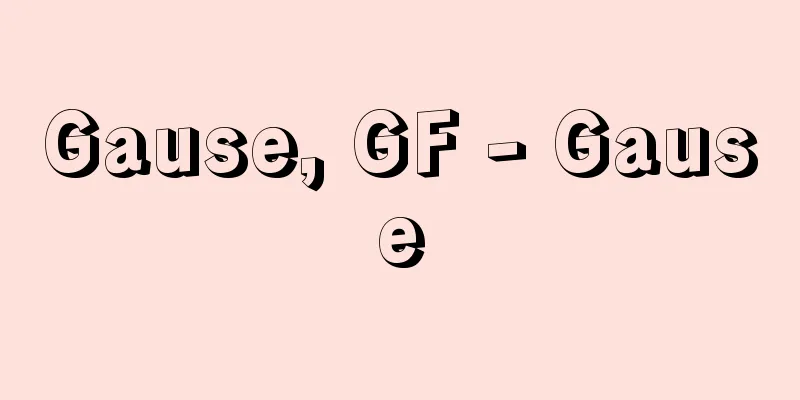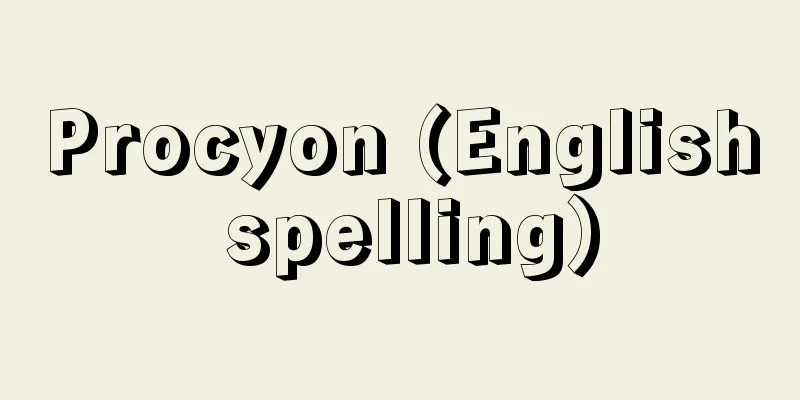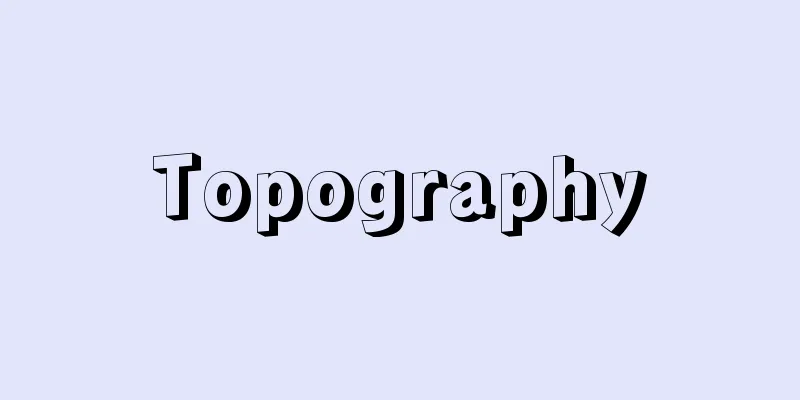Journalism - journalism English

|
A general term for the activities of the mass media to convey reports and commentary on current facts and issues. It is also used to refer to the mass media themselves that carry out such activities. Historically, printed periodicals, especially daily newspapers, are the core media of journalism. Etymologically, journalism comes from the Latin diurnus, which means "daily," and the word journalism began to be used in daily life in Europe and the United States from the early 19th century, when daily newspapers became the standard pattern of newspapers. However, on the other hand, magazines also became popular, and in the 20th century, with the emergence of movies, radio, and television, journalism and the means of expression became more diverse as media became more diverse. However, the central function of journalism is to convey "reports and commentary on current facts and issues." This reporting function is accompanied by the normative qualities of truthfulness and objectivity, and the commentary function is accompanied by the normative qualities of criticality. In this sense, the concept of journalism has a strong normative character. Therefore, while there are overlapping areas between mass communication, which is a unified concept for the social transmission of information to the masses in general, and mass media in general, which is the transmission medium therein, and journalism, there are also natural differences. Furthermore, depending on the characteristics of each medium, there are differences in the degree of journalisticity between media, and even between the various activities of the same media, although it is not easy to draw a line between them. In that sense, today's journalism can be considered, in the narrowest sense, as the activities and characteristics of a certain range of mass media that connects the reporting and commentary activities of daily newspapers at their core to radio and television news programs, current affairs magazines, and newsreels. [Yoshimi Uchikawa] Public and commercialAs will be described later, journalism's core function of reporting and commenting on current events is to selectively report changes that have occurred in the real environment based on certain value judgments, and to provide commentary based on certain concerns and views. Through this, journalism has historically been entrusted with the role of being the nervous system of society, as well as a watchdog and warning device for civil liberties and democracy. To that extent, journalism has a public nature. This is why journalism is granted certain social privileges and there are social systems and practices that allow journalists to be given certain conveniences. On the other hand, journalism is run by newspapers and other mass media companies, which seek to maintain and develop their businesses based on the laws of business management and profitability. This is a necessary condition for journalism to operate from a free position independent of the government and other forces. As a result, journalism often succumbs to the commercial orientation of mass media companies and distorts its original function. The contradictory relationship between the public nature of journalism and the commercial nature of mass media companies can be said to be one of the weaknesses of journalism in a liberal society. [Yoshimi Uchikawa] Socialist journalismThe concept of journalism also existed in communist countries such as the former Soviet Union. It can be said that journalism is the same as journalism in liberal societies in that it refers to the reporting and commentary activities of the mass media on current facts and issues. However, the nature of the mass media itself was fundamentally different in the two countries. The mass media in liberal societies is fundamentally characterized by its free reporting and commentary independent of political power, while the mass media in communist countries is defined as a means of incitement and propaganda for the construction of socialism, and it was considered natural that it would be placed under the control of the Communist Party and the government. Therefore, journalism in communist countries can be said to be a unique form of socialist journalism produced by such mass media. Contemporary Chinese journalism also basically has these characteristics. However, after the collapse of the Soviet Union in 1989 and the establishment of the Commonwealth of Independent States (CIS) with the Russian Federation at its core, communism as a state ideology disappeared and the mass media was liberated from the Communist Party and government. As a result, it can be said that, with the exception of China, liberal journalism has basically begun to develop in the former Soviet Union and Eastern European countries. [Yoshimi Uchikawa] Journalist activitiesBy the way, a journalist is someone who is engaged in journalistic activities, that is, in the work of reporting and commenting through the mass media. In the past, there have been claims that, in consideration of the public nature of journalism as mentioned above, the profession of journalist should be treated as a special profession like that of a lawyer or a doctor, and that only those with certain qualifications should be allowed to become a journalist. This has been rejected on the grounds that the qualification system required for this would actually restrict the freedom of journalism, and that the disadvantages outweigh the advantages. There were cases in Germany under Hitler and in Japan during the Pacific War where a registration system for newspaper reporters was introduced for political purposes as a means of censoring speech, regardless of the professional system. However, while it is problematic to treat the activities of journalists as special in an institutional sense, in consideration of the public nature of the function of journalism, highly specialized ethics are required for the activities of journalists. Certainly, the presence of excellent journalists is an important condition for ensuring a high level of journalism that is commensurate with the public nature of journalism. For this reason, it was the United States that placed importance on the need for vocational education for training journalists at university level, and in 1908, the University of Missouri established a journalism school. In 1912, Columbia University also opened a journalism school, funded by a bequest from Pulitzer, as per his will. In Europe and Japan, vocational education for journalists at universities, as in the United States, is almost nonexistent, and journalist education is based mainly on the accumulation of practical experience and in-company training at each mass media company. In communist countries, due to the unique nature of socialist journalism, vocational education for the planned securing and training of journalists has been systematically and actively implemented at universities. Journalist education in modern China is no exception. [Yoshimi Uchikawa] Western journalismIt can be said that journalism began with the history of modern newspapers. Modern newspapers, which were born under absolute monarchy in the 17th century, served as a powerful driving force for the civil revolution demanding civil liberties while fighting against the patent censorship system. As a result, the constitutional guarantee of freedom of the press was established under the newly established modern state, and the freedom of reporting and commentary, which is the central function of journalism, was recognized. Of course, this freedom was still only a theoretical freedom, and newspapers and other mass media had to continue to fight many obstacles to realise and expand this freedom. Journalism in early modern states was characterized by "political debate" journalism, which was centred around a small number of elites competing for leadership in the new political system, and party newspapers were the mainstream. In the mid-19th century, newspapers began to be popularised and commercialised, and at the same time, a trend towards objectivity in reporting began. However, in the West, due to the traditional political climate in which individuals actively express their opinions, there is a strong tendency to support the partisanship of newspapers, and therefore, although there have been changes since then, ties with political parties have not disappeared. This is particularly true in Europe. In the 20th century, modern popular newspapers, starting with the British Daily Mail, which was launched at the end of the 19th century, began to take off in earnest, ushering in an era of "popular" journalism with huge circulations. What is unique about Europe and the United States is that, in parallel with this, there existed "elite" journalism in "quality papers," which, although they did not have as large circulations, had readers who were involved in policy decisions and public opinion guidance in various fields, as well as the intellectual class, and they came to play a major role. Typical examples of this are The Times, Le Monde, and The New York Times. [Yoshimi Uchikawa] Japanese journalismJapanese journalism began after the Meiji Restoration. In the early period, "political debate" journalism became mainstream, which is similar to the situation in the West. However, in Japan, from the mid-Meiji period to the early Taisho period, newspapers gradually separated from political parties, and as a result, all newspapers preached impartiality and became mass newspapers, and they did not coexist with quality newspapers. This is thought to be related to Japan's political climate, which does not value the active expression of opinions by individuals, as well as Japan's intellectual climate, which has a strong tendency toward standardization, as well as distrust of political parties. This historical tendency in Japanese journalism can still be seen today. Recently, with changes in people's values, the rapid spread of media diversification, and especially television and other visual media, the social influence of print media such as newspapers has declined relatively, and it is believed that Japanese journalism is facing a major turning point as a result of this. [Yoshimi Uchikawa] "Editor-in-chief Mataichi Kido, Lectures on Contemporary Journalism, 6 volumes (1973-74, Jiji Press)" ▽ "Edited by Yoshimi Uchikawa and Naoyuki Arai, Japanese Journalism (1983, Yuhikaku)" [References] | | | | |Source: Shogakukan Encyclopedia Nipponica About Encyclopedia Nipponica Information | Legend |
|
マス・メディアが時事的な事実や問題に関する報道・論評を伝達する活動の総称。そのような活動を行うマス・メディア自身をさすことばとして使われることもある。発生史的には印刷定期刊行物、なかでも日刊新聞がジャーナリズムの中核メディアである。語源的にもジャーナリズムはラテン語で「日々の」を意味するdiurnusに発しており、ジャーナリズムということばが日常的に使われるようになったのも、日刊紙が新聞のパターンとして一般化した19世紀初頭以降の欧米である。しかし、他方で雑誌も普及し、20世紀には映画、ラジオ、テレビが登場するなど多メディア化が進展するに及んで、ジャーナリズムも、表現の手段も多様化した。しかし、ジャーナリズムの中心的機能は「時事的な事実や問題に関する報道・論評」の伝達にある。そして、このような報道機能には真実性と客観性、また論評機能には批判性という規範性が伴っている。このような意味で、ジャーナリズムの概念は、規範的概念としての性格が強い。したがって、大衆に対する情報一般の社会的伝達現象の統一的指示概念であるマス・コミュニケーション、ないしそこにおける伝達媒体たるマス・メディア一般とジャーナリズムとの間には、重なる部分があると同時に、おのずから違いがある。また、各メディア特性に応じて、メディア相互間のジャーナリズム性、さらには同一メディアの行っている諸活動相互間のジャーナリズム性にも、線を引くのは容易でないが濃淡の違いがある。その意味で今日のジャーナリズムは、もっとも狭くいえば、日刊新聞の報道・論評活動を核にしてラジオ・テレビの報道番組、時事雑誌、それにニュース映画をつなぐ一定範囲のマス・メディアの活動とその特質と考えてよいだろう。 [内川芳美] 公共性と商業性ところで、後述するように、ジャーナリズムの中心的機能たる時事的な報道・論評活動には、現実的環境に生起した変化を一定の価値判断によって選択報道し、また、一定の問題意識と見解にたった論評を行うことを通じて、社会の神経組織としてと同時に、市民的自由ないし民主主義のための監視・警報装置としての役割が歴史的に負託されてきた。その限りにおいてジャーナリズムには公共性がある。ジャーナリズムが一定の社会的特権を認められたり、ジャーナリストへの一定の便宜供与を許容する社会的制度や慣行が存在しているのはそのためである。他方、ジャーナリズムは新聞社その他のマス・メディア企業によって営まれていて、マス・メディア企業は、企業経営の法則や採算に基づいて企業の維持・発展を図る。これは、ジャーナリズムが政府やその他の勢力から独立して自由な立場から活動を行うための必要条件である。そこからくるマス・メディア企業の商業性志向の前に屈して、ジャーナリズムが本来の機能をゆがめて果たすことも少なくない。ジャーナリズムの公共性とマス・メディア企業の商業性の矛盾的関係は、自由主義社会のジャーナリズムの弱点の一つといえる。 [内川芳美] 社会主義ジャーナリズム旧ソ連など共産主義国家にもジャーナリズムの概念があった。マス・メディアによる時事的な事実や問題に関する報道・論評活動をさす点は自由主義社会のジャーナリズムと同じだといえる。しかし、両者ではマス・メディアそのものの性格が基本的に違っていた。自由主義社会のマス・メディアは、政治権力から独立した自由な報道・論評を行う点に原理的な特質があるのに対し、共産主義国家のマス・メディアは、社会主義建設のための扇動・宣伝の手段と規定されており、共産党および政府の統制下に置かれるのは当然だと考えられていた。したがって共産主義国家のジャーナリズムは、そういうマス・メディアによる独特な社会主義ジャーナリズムだということができる。現代の中国のジャーナリズムも基本的にはこのような特質をもっている。しかし1989年ソ連崩壊後、ロシア連邦を中核とする独立国家共同体(CIS)ができて以後は、国家イデオロギーとしての共産主義が消滅し、マス・メディアは共産党・政府から解放されたので、中国は別として、旧ソ連・東欧諸国では基本的には自由主義的ジャーナリズムの展開が始まっているといえる。 [内川芳美] ジャーナリストの活動ところでジャーナリストとは、ジャーナリズム活動、すなわち、マス・メディアによる報道・論評の仕事に従事している人をいうわけであるが、前述したようなジャーナリズムの公共性にかんがみて、ジャーナリストの職業を、弁護士や医師と同様の特別な専門職業(プロフェッションprofession)として扱い、一定の有資格者以外はなれないことにすべきだとの主張が過去にあった。これは、そのための資格認定制度がジャーナリズムの自由をかえって制約することになり、メリットよりデメリットが大きいとして退けられてきた。プロフェッション制度とは関係なく、政治的な目的のために、たとえば新聞記者の登録制度を敷いて言論統制の方策とした例が、ヒトラー時代のドイツや太平洋戦争体制下の日本などにみられた。しかし、制度的にジャーナリストの活動を特別扱いにすることは問題であるが、ジャーナリズムの機能の公共性にかんがみて、ジャーナリストの活動には、専門性の高い倫理性が求められる。 ジャーナリズムの公共性にふさわしい水準の高い活動を担保するためには、確かに優れたジャーナリストの存在が重要な条件である。そのために、大学レベルにおけるジャーナリスト養成の職業教育の必要が重視されたのはアメリカで、1908年、ミズーリ大学にジャーナリズム学部が創設された。続いて12年、コロンビア大学にも、ピュリッツァーの遺志によって彼の寄付した遺産を基金にジャーナリズム学部が開設された。ヨーロッパや日本では、アメリカのような大学でのジャーナリストのための職業教育はほとんどみられず、ジャーナリスト教育は、主として実際的経験の集積や各マス・メディアの企業内教育に拠(よ)っている。共産圏諸国では、社会主義ジャーナリズムの特殊性から、その要員の計画的確保と養成のための職業教育が大学で組織的、積極的に実施されてきた。現代中国のジャーナリスト教育もその例外ではない。 [内川芳美] 欧米のジャーナリズムジャーナリズムは近代新聞の歴史とともに始まったといっていい。17世紀絶対王制下に生まれた近代新聞は、特許検閲制度と闘いながら市民的自由を要求する市民革命推進の有力なばねとして働いた。その結果、新たに成立した近代国家の下で出版の自由に関する憲法的保障が確立され、ジャーナリズムの中心的機能たる報道・論評の自由が承認されるに至った。むろん、この自由はなお原則的な自由にとどまり、新聞をはじめとするマス・メディアは、この自由の実質化と拡充のために、このあとも多くの障害と闘わなければならなかった。初期近代国家のジャーナリズムは、新しい政治体制のリーダーシップの争奪をめぐる少数のエリート中心の「政論」ジャーナリズムにその特徴があり、新聞は政党新聞が主流だった。19世紀中葉になると新聞の大衆化・商業化が始まり、それと同時に報道の客観化志向が始まった。ただ欧米では、個人が意見を積極的に表明する伝統的な政治風土から、新聞の党派性が支持される傾向が強く、したがって政党とのつながりも、このあと変化はあるものの消滅はしていない。ヨーロッパではとくにそうである。 20世紀に入ると、19世紀末創刊のイギリスの『デーリー・メール』を先頭に始まった現代型の大衆新聞が本格的展開をみせ、巨大部数を擁する「大衆」ジャーナリズムの時代が開幕した。欧米で特徴的なことは、これと並行して、部数はそれほど大きくないが、各界の政策決定や世論指導の関係者および知識層を読者にもつ「高級紙」による「エリート」ジャーナリズムが一方に存在し、大きな役割を演じていくことになった点で、『タイムズ』『ル・モンド』『ニューヨーク・タイムズ』などはその典型である。 [内川芳美] 日本のジャーナリズム日本のジャーナリズムは明治維新後に始まった。初期に「政論」ジャーナリズムが主流となったが、これは欧米の場合と似ている。ただ日本では、その後、明治中期から大正初期に新聞の政党からの離脱が進み、その結果、全新聞が不偏不党を唱え、かつこぞって大衆新聞化し、高級紙との併立関係は成立しなかった。これには政党不信と同時に、個人の積極的意見表明をあまり評価しない日本の政治風土や、平準化志向の強い知的風土が関連していると思われる。日本のジャーナリズムのこの歴史的傾向は、現在もなお認められる。最近では、人々の価値観の変化、多メディア化、とくにテレビなど映像メディアの普及の急速な進展のもとで、新聞など活字メディアの社会的力が相対的に低下し、それを契機に日本のジャーナリズムも大きな転換期に直面しているとみられる。 [内川芳美] 『編集代表城戸又一『講座 現代ジャーナリズム』全6巻(1973~74・時事通信社)』▽『内川芳美・新井直之編『日本のジャーナリズム』(1983・有斐閣)』 [参照項目] | | | | |出典 小学館 日本大百科全書(ニッポニカ)日本大百科全書(ニッポニカ)について 情報 | 凡例 |
>>: Shahnameh (English spelling)
Recommend
taille réelle (English spelling) taillereelle
…Persons holding public office were also exempt. ...
Long-legged parakeet - Long-legged parakeet
…They make up the majority of the approximately 3...
Chaitanya - Chaitanya (English spelling) Caitanya
He was the founder of the Chaitanya sect, a branc...
Tsukuba [city] - Tsukuba
A city in the southwest of Ibaraki Prefecture. In ...
Cochin (English spelling)
A port city in the central state of Kerala, southw...
Hamlet
…(1) farmstead, homestead: the isolated manor hou...
Yoshimaro Tanaka
Geneticist. Born in Nagano Prefecture. Graduated ...
Christendomchaft
…In 1913, while he was in Nuremberg, he heard a l...
Hevesi G. (English spelling)
…Hungarian chemist. His Hungarian name was György...
Abukuma Mountains
…It is also called the Abukuma Mountains. It is a...
Callistemon genus
...After a few years, the seeds scatter. Among th...
Jinja (English spelling)
A city in southeastern Uganda. It is located on th...
Ekeri - Ekeri
…The belief that sisters have the spiritual power...
Ability to speak
One of the six principles in the Code of Law. A sp...
Kant (Railroad) - Kant
The difference in height between the inner and out...









